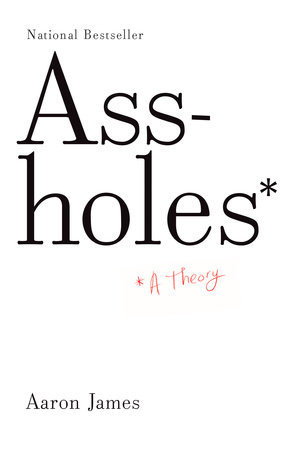“Asshole,” a (conjectural) journey: from metaphor to literal truth
In the beginning was the word, used as a mere metaphor. A World War II soldier called his superior officer, Sargent Pug, “an asshole,” thereby inviting his fellow soldiers to imaginatively engage Pug in a certain unflattering light. He and his fellows were to not simply to liken Pug to a foul and hidden part of his own body, as though Pug had similar physical and aromatic features. They were also to see or experience Pug as an asshole, and to further interpret Pug and his actions from an imaginative frame of reference in which Pug is the physical embodiment of a body part, which behaves much as that particular body part might, and which brings us to feel and almost believe of him that he is as problematic, as foul, and as shameful when exposed, nakedly, in public.
The more literal minded of soldiers might have objected: “Look, it is not strictly speaking, literally true that Pug is an asshole any more than it can be strictly speaking, literally true that Pug is his right arm.”
In reply, the soldiers will laugh off the objection as beside the point. Sure, they’ll say, the statement “Pug is an asshole” is literally false, and that “asshole” is just a metaphor. The point here, they’ll say, is that use of the word by the soldiers, in this case, says things that could not have been literally said of Pug up to this point. Some of those things might of course be put as literal truth claims, such as the claim that Pug isn’t worthy of respect, or that he is contemptible. But even those truths, they’ll say, aren’t the point of the metaphor: it is rather to see Pug as though he is in fact an asshole, to see him in an light that cannot be fully expressed in so many truths.
Invoking the metaphor quickly became popular, among the other soldiers on the base, in the wider army, and then in further reaches of society. People found the metaphor especially apt for people like Pug. They found calling someone an asshole an especially handy way of expressing their contempt for abusive authority figures who are not, for them, worthy of respect. People who heard the metaphor invoked found it especially easy to grasp what the speaker meant by this: they meant not simply to vent feelings of contempt, but to invite an interpretation of their target that would make those feelings of contempt fully appropriate. You could easily tell that, when someone is calling someone an asshole, he or she has a certain moral view of things: that person called an asshole is not worthy of respect, because of how he treats those around him.
Soon enough, the word became so popular that you could readily land upon this interpretation of its user’s meaning, without knowing very much about his or her context of utterance. The aptness of the metaphor, once widely appreciated, induced a change its kind of meaning: calling someone an asshole moved away from mere metaphorical communication and became a literal, more routine claim to truth, a claim to the truth of a moral judgment: that the person called the asshole is indeed not worthy of respect because of the way he treats others.
For awhile very few speakers were especially careful or aware about exactly what kind of unsavory people they were calling an asshole. Nevertheless, there gradually came to pass a rough but remarkable convergence. The invited perspective would be appropriate for certain kinds of people and not for others. Knowing or not, people began to grasp the rules of normal usage, which called for one type of person to be called an asshole while another type of person would be left for some better name.
Finally, the rules became well enough established that a competent speaker of the language could entertain asshole judgments without meaning to express contemptuous attitudes. The curious user of the language would wonder whether this person is the right kind of person to qualify as unworthy of respect in a particular way, even without feeling at all exercised about this, let alone speaking out about it. The curious person would ask questions that don’t express negative attitudes, such as “Is Trump an asshole?” or perhaps reason with hypotheticals as in: “If Trump is an asshole, I probably shouldn’t watch his show; Trump does seem to be an asshole: so I probably shouldn’t watch his show.”
Private reflections aside, all of this could be discussed in a mode of cool-headed argument among friends. Over coffee, friends might agree that, yes, Trump indeed qualifies as an asshole, and not merely a harmless ass-clown, and so that we probably shouldn’t go out of our way to listen to him or watch his show. Maybe the friends never follow through. Maybe they aren’t particularly exercised about this particular case, in contrast with other assholes who are more profoundly disturbing. And yet they’ve reasoned together and reached agreement that Trump is, in fact, an asshole.
One day, a less agreeable fellow in the coffee shop denied this, saying that it isn’t *literally* true that Trump is an asshole. But now the friends don’t say that this is beside the point. They beg to differ. They say: “no, that’s wrong; Trump definitely qualifies; he’s literally an asshole; you’ve made a mistake.”

